A square, dim-lit office in Dahlem, the day of departure of this winter session’s Samuel Fischer guest professor of literature. Bestselling author Andrew Sean Greer talks to Alfonso Maestro about his Berlin sojourn, the bittersweet experience of writing and his lifelong acquaintance with abstract art.
FURIOS: When you were a child someone told you that painting was “not a job”, so you quit painting and started writing. Do you still consider visual art a big influence?
Andrew Sean Greer: It’s still painting that moves me the most and it’s abstract painting that does it for me. I remember looking at a giant Jackson Pollock when I was a kid, I would sit there and not know what was wrong with me that it affected me so much. It has something to do with the fact that they are not literal. Something like a Rothko, that works well for me. And poetry also: You read it and you don’t know what it is. But it’s something and you just want to explore more. And create something. With photography it’s different, I start to think about the information implied and, although I like it, it doesn’t do anything to me. And for some reason the music also––I’m very weird this way––doesn’t do a lot for me. But I have a strong reaction to painting. So I visit galleries a lot if I’m trying to think. It puts me in the right mood to make something. And that’s the feeling I had as a kid, I can still get that.
FURIOS: On Live like a writer, a twitter channel with “free bad advice”, you encourage your followers to take part-time jobs instead of earning Master’s degrees. How did your experiences as a driver, theater light technician or television extra impact on your writing at that time?
Greer: I would have something to write about that wasn’t just college dorm life, you know. And I met people who could become characters, people that had stories to tell that weren’t like my own. It also meant I could make some money before I strike it rich as a novelist. The terrible thing is that mostly you don’t get your stride as a writer until you are something like twenty-eight, twenty-nine, thirty. So a lot of the time you are making mistakes and maybe making something great––and then the next thing is odd. You are still finding your way, so during that whole time when you need to be writing it would be great to fill it with something else in the meantime. The better way to feed your writing is to do something. But I got an MFA so…
FURIOS: … in Creative Writing. Was it any use?
Greer: I was living in New York City at the time and all of my friends had fancy jobs and made a lot of money. I was trying to work on a novel. All my artistic friends had given up on being playwrights or directors and I was the only one left, so I couldn’t participate in anything with my friends, unless I got a real job. I had to make a choice: I applied to MFA schools and went there. Suddenly I was in a crowd of people who were as broke as I was and all they cared about was books. It was paradise because no one talked about the hot new club in the West Village. We were in Missoula, Montana, there was no hot new club! Now the bad part is that most Creative Writing programs have a way of flattening everyone’s style until all sounds the same because it’s like a committee meeting to create something and committees don’t make great works of art. You have to have a real spine to do what you believe in and certainly what I was doing was so weird that no one knew what to make of me. No one understood what I was trying to do. Too bad because it flattened me out a little bit and got me down about myself. I was never that crazy or experimental again.
FURIOS: What happened to your former writing style?
Greer: They kind of kicked it out of me. I think I would be a crazy writer if I hadn’t got into the MFA program. All of my work previous to that remains unpublished, all of it. I came with half a novel written and I showed it to everyone for a year and got feedback. I made all these changes. But I am convinced, my first version was much better than what I ended up with. I should have finished the book according to my vision, but instead I let other people’s visions in and it clouded the whole thing up, so I had to abandon it. I will never go back to that. The tweet meant: It’s a danger, a place like that. And you can also get very careerist and competitive. And those things don’t matter.
FURIOS: In Billion Footed Beast Tom Wolfe argues you don’t become a writer because you have something to say, but because you discover a “musical ability with words”. What’s your view on that?
Greer: I usually don’t agree with Tom Wolfe, but sure he’s right. I don’t think writers have any particular insight into the human condition. I’m not wise at all. But I do realize that I have a talent for writing sentences that sound wise. They sound great, I could do it every day. But I don’t know anything, as my life proves. So don’t listen to me, but read my books! I’m better on the page.
FURIOS: How demanding is your job as a writer? Is there any room for… dreams?
Greer: I definitely still have a dream. First, I believe in being a writer as a job where you have to commit to a daily routine. I just discovered it myself here. I came with an idea of a novel and I thought I would plot it out and work on it. I thought “this is good, this is the right novel for me to write”. I didn’t do it and I worked on something else that is crazy and won’t sell. Because it interested me more. I want to be able to keep doing that and following some nuts train of thought as far as I can take it. But, of course, the dream is to write something that lasts. You never know if you’re doing that or not. And it’s impossible, I mean it is a crazy idea. But it would be nice for it to happen in my lifetime since I’m an atheist and I don’t believe in being famous after death.
FURIOS: The most difficult moment of your life as an artist?
Greer: Two things. One happens every time I write a book––and I can’t tell which time was the worst––I do what Nabokov did. I grab the manuscript and take it to the incinerator and someone has to stop me (laughs). That is pretty awful every time it happens, and it happens every time. At least once. I’d be lying on the couch for a week, deeply depressed. I don’t know what depression was the worst… my husband always says that I keep forgetting about how bad the last one was. Every time I say “this time I’m right”, but I’m not.
I also think this was hard: Some years ago, my agent disappeared for a while because of a drug problem. He was the person whom I had relied on for ten years to give me feedback and suddenly I was left with no one and was writing in a vacuum. I had to decide to be enough of a grown up to listen to myself and to not think that there is a magic person that helps me write. To believe that I am in fact the writer. The person who gives me feedback is replaceable and I am not. That was a very hard thing to face. But I did and having done that changed me. I had to replace him with a new agent and that was a very sad experience for me because my agent relationship is not like a business relationship: It feels romantic. They are the only ones who read what is the most important thing for you.
FURIOS: They fight with you?
Greer: They fight with you. They chose you. And if the main part of my emotional life is tied up in my writing, well my husband doesn’t see that, no other person sees. So it was heartbreaking to lose him and realize that I was okay alone, actually fine. Maybe better.
There is a friend of mine, writer Jonathan Lethem, who told me once: There comes a certain point where you have to bet on yourself and start believing that your instincts are right and that you are an artist and you are going to decide how to do it. This is not easy, especially when you are young and you want to please them all.
FURIOS: The most memorable moment of your life as an instructor?
Greer: As an instructor (laughs)? Oh, well… here at Berlin university it’s been fantastic. But I do remember a moment last year when I was teaching Proust. And found the things coming out of my mouth to be pretty great. Apparently I had thought strongly about this author and had a lot of reflections I didn’t know. The students after class – American students don’t knock on the table at the end of the class, they just leave – they talked to me about it and could not believe it. I don’t know what happened, I think I just finally got a subject that I truly loved and really communicated it to the students. Suddenly they all wanted to read Proust. My God, that’s the whole point of it! That felt good, but mostly teaching feels like an accumulation rather than particular moments.
FURIOS: One thing you taught about writing in class at FU was not to hold back with your own experiences. You said that using up our stories wasn’t a problem as they are infinite. Or at least kind of infinite.
Greer: I was talking to myself… I keep thinking I only have a few really good stories and I have to save them until I do them really right. And it just isn’t true. Every single story can be a great story. I took a trip this Christmas to Denmark to visit a friend and we went to a Christmas lunch where I met a whole family and thought “this is a story”, it hit me. These three hours is a story and the last three weeks at clubs in Berlin is not, even though it seems more exciting. And the story of how my parents met I never wrote about? Well, even though it seemed like a great story when I was a teenager, it is not. So you can spend them freely. As long as you keep paying attention you won’t run out. And you have to donate a little blood to your story to make it alive. You can’t get by on cleverness, you have to give it an organ. If you’re writing a novel and you’re stuck, the answer often is “I guess I’m gonna give it one of my stories”. When a character isn’t really coming alive you have to donate an organ. Because what? Are you going to save it for a better novel? This is the novel!
FURIOS: You also asked your students if they were working on a novel. Only one of them outed himself as a writer. Is this disappointing or does it simply reflect the nasty paradox that you are not a writer until you are a writer?
Greer: That’s a good question. Well, first of all: It turned out that more people are writing a novel, but they didn’t want to raise their hands. Everyone’s writing a novel, but it’s… embarrassing! It seems too arrogant to say “I’m writing a novel”. It’s also what you are saying, you are not a writer so you can’t say you’re working on a novel, it’s a ridiculous thing to say. When I went to that MFA program and met all these writers, only after that did I feel like I was a writer although I hadn’t published anything. It wasn’t about publication. I certainly had written enough and committed to it enough––I was not a hobbyist any more. Although I had written a novel and a lot of short stories and I had a degree (laughs), the point was committing to being a writer. And by the way Kolja is not even a writer, he is an engineering student (laughs).
FURIOS: What’s the difference between teaching Creative Writing to Americans and Germans?
Greer: Americans talk all the time and Germans do not. There is not the divide between professor and student that there is here. It’s not a formal relationship. In the US, the students feel that they are taking the class and should talk every class. That’s the shape that it takes. They have strong opinions and they are dead wrong and they don’t listen to you. It can be frustrating when you have to moderate a group that hate each other or something like that. Besides, German students come to class, at least to my class! And they were better read than American students I’ve had.
FURIOS: This is your fourth time in Berlin. Did you pick up anything for your work, any bizarre detail or gothic character on the subway?
Greer: I kept a journal and wrote down everything, but I don’t know yet. I’ll be surprised when I look back on it––but I would never be interested in a story that was about Berlin. Berlin would just be the occasion for something to take place. But it’s very appealing. And I’m not one of those expat writers writing about an American in Berlin or something. You could do that, but you would have to be careful not to be too… precious. I would certainly set something in Berlin because now I know it, I know the goddamn subway like the back of my hand and I saw enough places that would be great settings for my writing.
I took a trip to Ireland once with a friend, just for a week, and years later I wrote a story about it. And it was not a fascinating trip, but something was right about it. I travel to fill up for my writing. And I never know what it’s going to be.
FURIOS: You will be teaching at the University of Iowa Writer’s Workshop next term. What records are you going to play in your Cooper en tour to your next academic duty?
Greer: I have a CD from the last time I drove from California to Iowa that friends made me, which has songs that mention the names of the states that I’m driving through (laughs). I’ll probably put that CD in. My publisher gave me another CD I’m looking forward to, which is a German singer whose name I forgot doing Kate Bush covers. But that won’t cover very much time, since I have four days of 10-hours-a-day driving.
FURIOS: I liked the facebook-playlists you put together as a musical bonus for the three different time layers of your upcoming novel The Impossible Lives of Greta Wells. It’s set in 1918, 1941 and 1985-86.
Greer: I don’t know if they go together, but I like them. They give an interesting flavor to the book. The most difficult thing to do was the 80s, because all really hit pop songs of that decade… I hate them. I was a teenager back then and I hated the popular songs, Madonna and Prince, these cheesy, generic memories. I was there! I’m not going to play Hall & Oates. But I put Kate Bush in there.
The 40s where all right. I wasn’t there, so I don’t mind playing Bing Crosby.
FURIOS: Greta Wells begins with the death of the protagonist’s twin brother. Was your identical twin an inspiration for this fiction, just as your grandmother was in A Story of a Marriage?
Greer: Yeah, in a way. I had written the brother not as a twin at first, but there was something missing from their connection and so I thought I’ll donate some of my life. Because I’m a twin and I know what it is like to be without him, I know how that connection works, so I used it. Now it turns out that I often use twins, there are twins in my last novel, elderly women. That’s the sibling relationship I know and it’s unique. At least we didn’t fight, but we did disappoint each other.
FURIOS: Because you were not… alike?
Greer: If someone is exactly like you and does something you wouldn’t do, you’re baffled! Whereas if there is someone wildly different, you think “well, that’s them!” We were constantly baffled by each other. He has no idea why I’m here in Berlin. It’s incredible to him. What am I doing here?
FURIOS: The European release of Greta Wells is scheduled for July. What can the readers expect from your new novel?
Greer: Oh my God, you are the first to ask me that. I wanted to make a book where you feel absorbed into a new world and fall into it and have some sense of wonder. I have written some very sad books and I wanted to make a book that had you left with a feeling of wonder. I’d almost say magic, but that’s too cheesy. A minor bitter sweet joy. Tough to modulate. I can do sad and I tried to do joy this time. That was my challenge. And I believe it is still very sad, that’s what I have been told. But I also know that there is a part at the end that makes people cry, but in a scene of a happy shock, so that’s good news.
FURIOS: Tell us, what are you currently working on?
Greer: I’m working on a space opera! That’s all I’m saying. It’s a science fiction novel, huge in scope and interplanetary. God knows what it is I’m doing. But it’s pretty fun.
FURIOS: When is it being released?
Greer: No, nobody knows about it. I never sell a book before it’s done. Not by choice, just habit. No one wants my books until they’re absolutely done because I think I write books that are really baffling and terrible until I work out how to get it right. Then suddenly everyone wants them. Until then, however, no one can tell what the hell I’m up to. And that will be the same with this science fiction book: Everyone will hate it until I’ve gone through a nervous breakdown and come out the other side. Then they’ll say they knew it all along.
FURIOS: Thank you very much for the interview, Andrew Sean Greer.
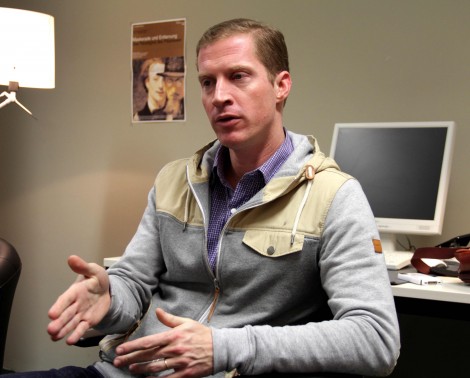
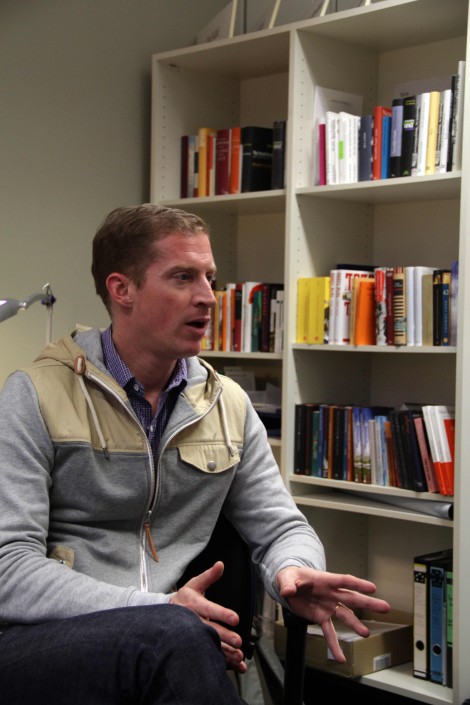
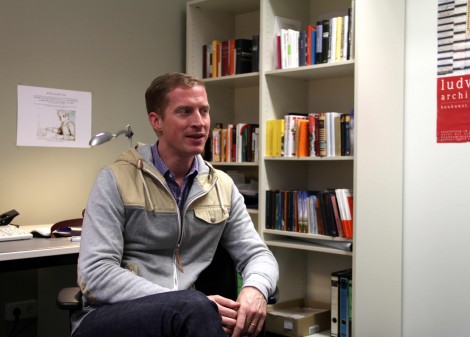
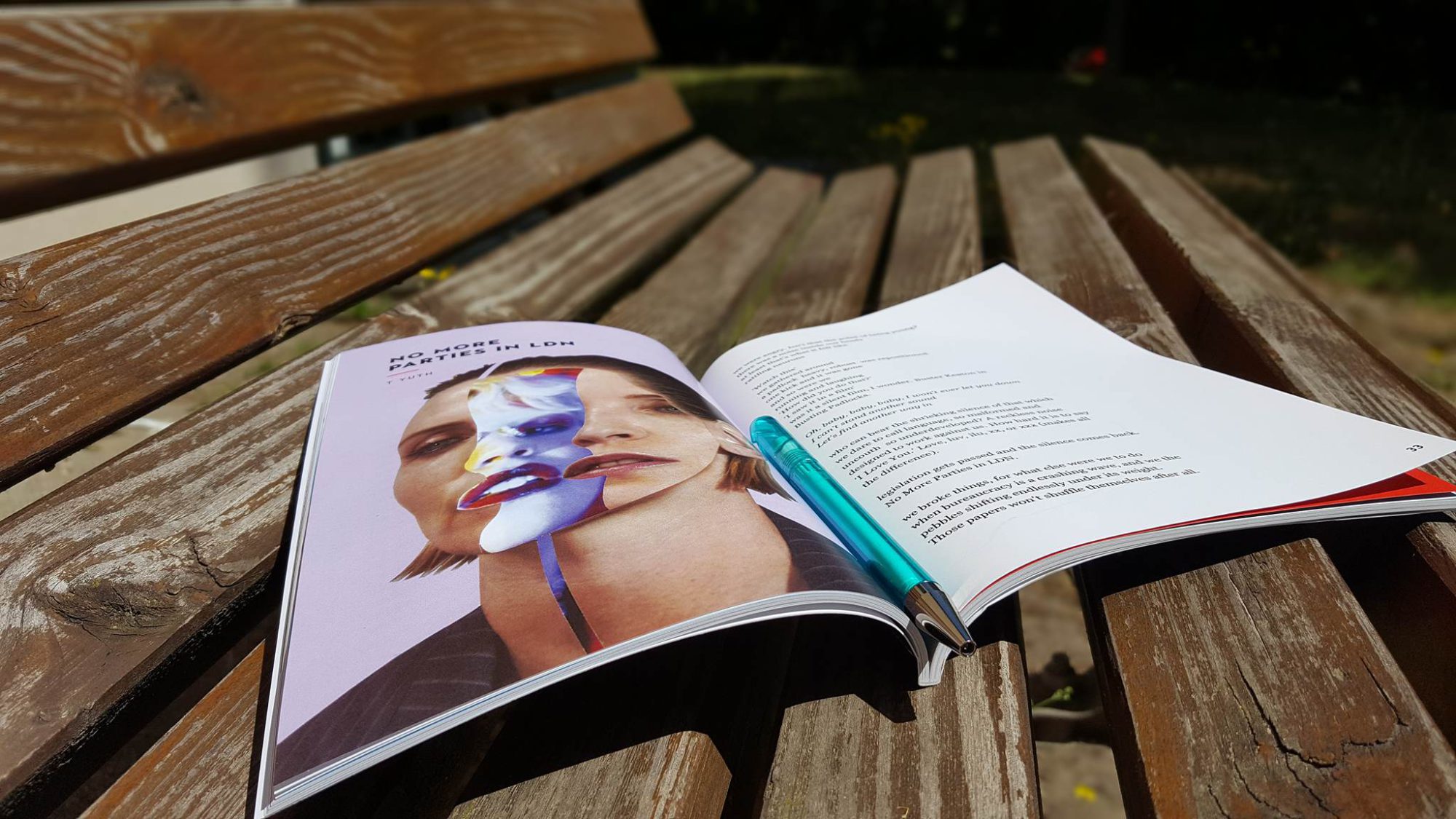
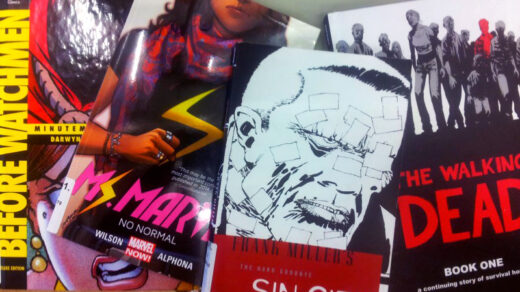
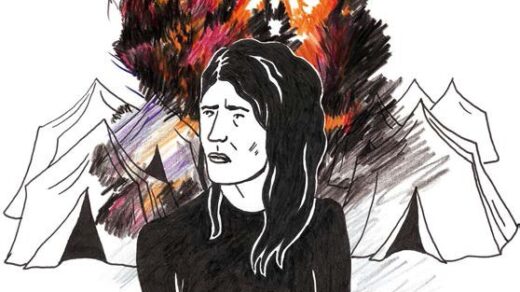

After reading this interview I feel like reading Greer’s books!
I found this interview very interesting!